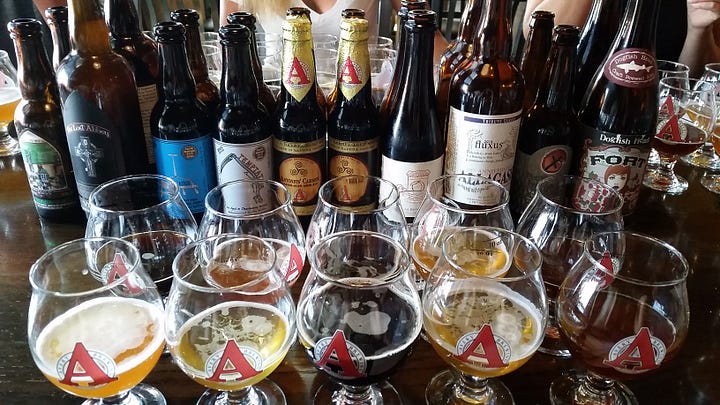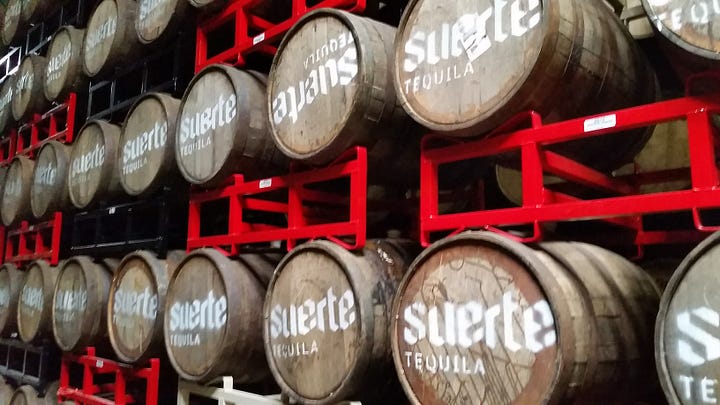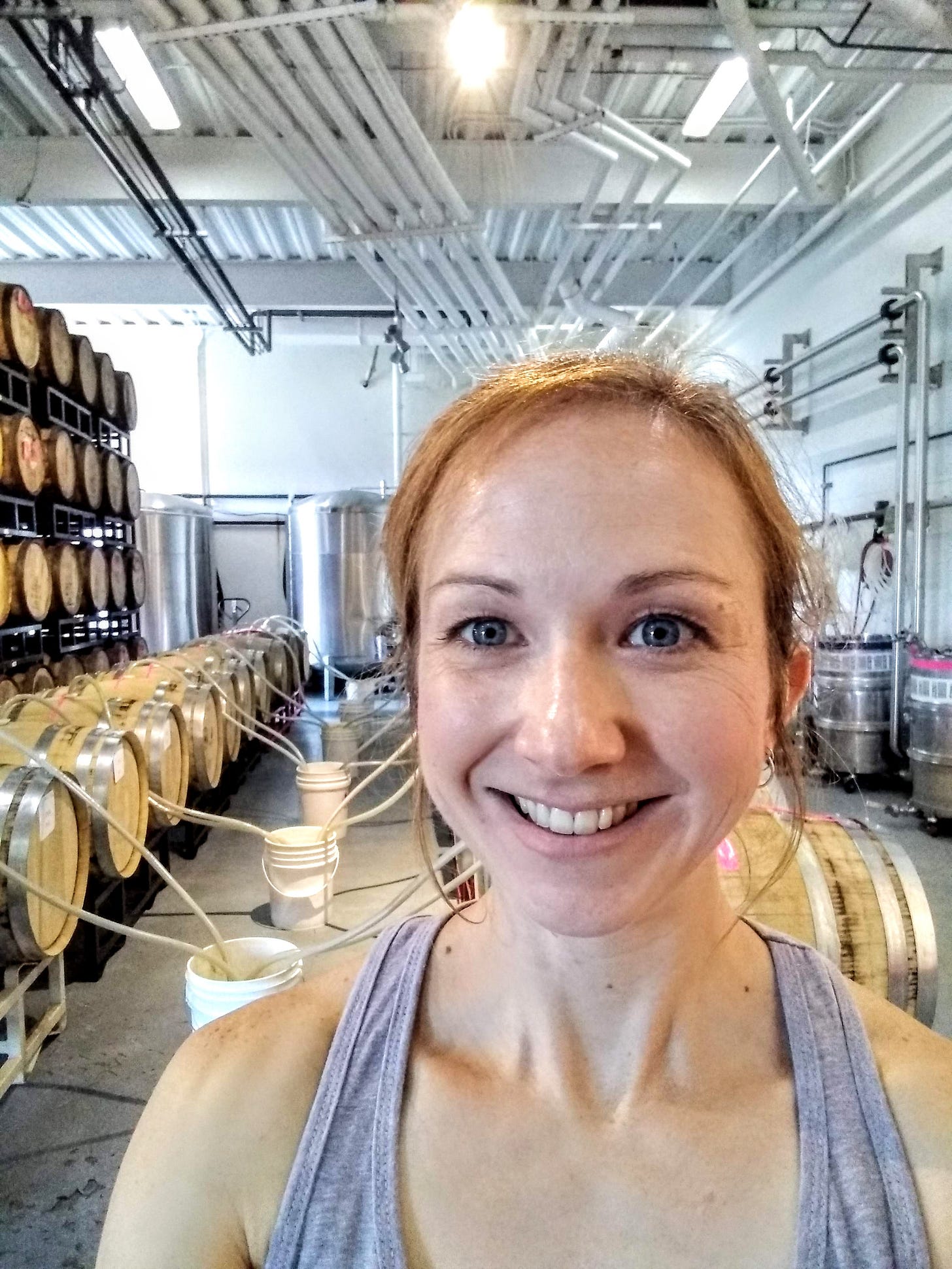Courageous Hospitality: Beer Science, and the Culture of Hospitality
Week 3: Beer Nerds, Belonging & the Joy of Sharing
“Wait… you give away your yeast?!
People were always stunned when I’d tell them that Avery Brewing Company regularly shared yeast with homebrewers and other breweries. “It will never be exactly like the White Rascal we brew here,” I’d say, “but if you love it and want to make it, we’re flattered. Do you want to take some of our yeast home?”
I was one of those homebrewers once. Drawn in not just by the aroma of dry-hopped IPAs, but by the sheer generosity of a brewery that believed great beer should be shared. Avery’s open-handedness with knowledge, equipment, and ingredients wasn’t just unusual. It was unreasonable.
This wasn’t a marketing strategy. It was hospitality. And not the polished, transactional service, this was something deeper. As I wrote the first week of this series, “Hospitality...trusts that the guest can express their needs, that the staff can respond creatively, and that a good experience is co-created.” That spirit of mutual trust was alive at Avery not just with guests, but across the whole brewing community. The willingness to trust others made hospitality inherently courageous, and that courage showed up in our openness to collaborate, to share, and to co-create experiences that made everyone feel they belonged.
Science as Service
Early on, Adam Avery invested in beer science. At a time when most craft breweries were just one step above homebrew setups, Avery installed lab equipment and started running real analyses on yeast health, fermentation stability, and process timing. It wasn’t just to make better beer, it was to empower brewers with knowledge.
And it wasn’t just for our staff. If any brewery in Boulder needed to test their yeast or had concerns about infection, they could come to Avery. Avery collaborated with the science community in service of better beer for all. In 2014 Avery collaborated with a lab at the University of Colorado to sequence the DNA of yeast strains. As the CU Boulder BioFrontiers Institute put it:
“Because Avery uses commercially available yeast strains, and because the microbrew industry has a culture of openly sharing techniques and tools, working with Avery could benefit Colorado’s entire brewing industry, which has a total annual economic benefit to the state of more than $400 million.”
That’s courageous hospitality on a systemic scale. When it would’ve been the norm to protect your intellectual property and guard your knowledge, Avery opened the doors. We cultivated a Brettanomyces strain from a bottle Adam Avery brought back from Belgium and shared it freely (Brettanomyces Drei, a wild yeast strain known for producing funky, fruity, and dry character, was a key player in our early sour beers. Avery started experimenting with it in 2006). We didn’t hoard knowledge about barrel-aging or sour beers. We launched Sour Fest so that beer nerds from across the country could gather, taste, and learn together. Andy Parker, Barrel Herder at Avery for close to 20 years, would chat anyone’s ear off sharing what he knew, whether about oak aging timelines, bacterial blending, or about how to build a recipe around a barrel.
Risking Collaboration Over Control
At Avery, hospitality wasn’t just something we did on the taproom floor, it infused every layer of the work. It informed how we trained new staff, how we responded to chaos on busy Saturdays, how we saw competition not as threat but as collaboration. In week one I wrote that, “Hospitality is inherently risky because it calls for authenticity, openness, and curiosity... This mutuality can feel disruptive in cultures shaped by rigid norms and predictable roles.”
It’s true in ministry. It was true behind the bar. And it was true in the brewhouse. We believed in giving away what we knew not just because it helped the industry, but because it was who we were. As I mentioned last week, “To offer courageous hospitality we humble ourselves, not needing to be defensive, or possessive (about anything, including our ego).”
From Nerdy Joy to Generous Culture
There’s a specific kind of giddy delight known to homebrewers when you get the right yeast strain to pair with a particular hop profile, and water chemistry (Love a tropical West Coast IPA? Try San Diego’s water chemistry with some Citra and Amarillo hops and Wyeast’s 1217 yeast). That joy didn’t stop when we went pro. The team at Avery kept experimenting, kept trading notes, kept opening up about what worked and what didn’t. Our joy was shared. And it wasn’t confined to our own taproom. We loved sending people to other breweries, making lists, recommending beers, even telling guests which bartender to look for. We knew that the more people fell in love with craft beer, the better it was for all of us. Spreading beer enthusiasm wasn’t competition, it was community.
Will Guidara says, “It might not work is a terrible reason not to try.” We took that seriously by breaking scripts, risking new processes, and inviting others into our experiments. When a new brewery asked for help, we didn’t hesitate. We knew that bad beer anywhere affected all of us. Good beer everywhere lifted the whole scene.
Fearlessness and Belovedness
This kind of hospitality isn’t just generous, it’s fearless. As I wrote last week, “From groundedness in our belovedness we can generously extend no-fear, and cultivate belonging with the person in front of us such that they too can simply exist in their belovedness.”
We were unshakable in our groundedness, and knew each beer fan or new brewery could belong with and thrive with us.
In brewing, as in life, courageous hospitality means giving others space to grow, to belong, to shine. It means trusting that what you share will come back to you transformed. Not less “yours” but more “ours”.
This was the culture at Avery. And it’s the kind of culture we need in more places today.
So what would it look like, in your work, to risk generosity instead of control? To collaborate rather than compete? To lead not with fear, but with sharing resources, offering knowledge, and a mutual belonging?
*Just to note, I can’t speak for Avery’s culture much today. While the brewery is still a pillar of craft beer, many of the brewers and scientists have moved on since I worked there many years ago. I hope this environment of openness, knowledge, joy, and hospitality continues!











I love this differentiation between entertaining and hospitality. That’s wild that you were at Avery in the past. Have you worked home brewing into your ministry?